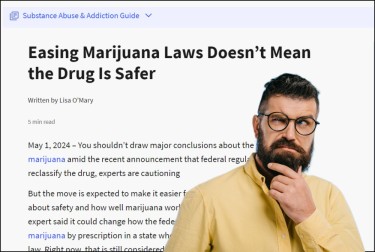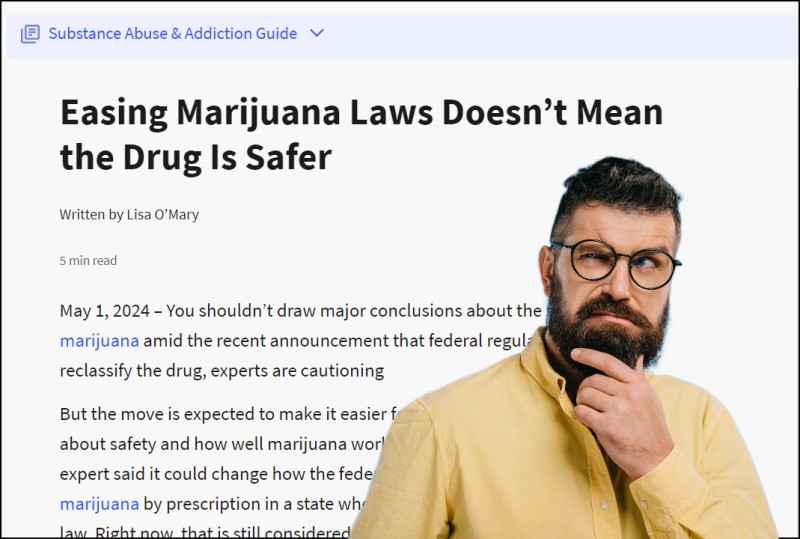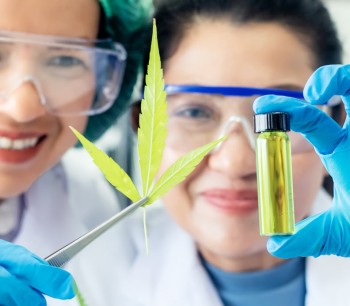
Easing Marijuana Laws DOES mean that marijuana is safer…
The debate surrounding the legal status of cannabis has been ongoing for decades, with proponents advocating for its rescheduling or complete legalization. Currently, cannabis is classified as a Schedule I drug, implying that it has a high potential for abuse and no accepted medical use. However, this classification is set to change, with discussions about moving cannabis to Schedule III or even fully legalizing it. This shift in policy is driven by the growing body of evidence that highlights the numerous medical benefits of cannabis, which directly contradicts its current Schedule I status.
Despite the impending changes in cannabis regulation, some articles, such as the one published by WebMD, claim that "Easing Marijuana Laws doesn't mean that the drug is safer." This statement seems to suggest that the reduction in scheduling or legalization of cannabis does not inherently make the drug safer for consumption. However, I disagree with this notion and argue that relaxing marijuana laws does, in fact, contribute to making cannabis safer. Throughout the rest of this article, I will explain the reasons behind my perspective, addressing the various factors that come into play when considering the safety of cannabis in the context of its legal status.
The Summary of the WebMD article
Here's the following summary of the most salient points of the WebMD article. Note, this is their opinion on the subject matter and I am only stating what they said. Afterwords, I'll explain why they are wrong!
-
Experts caution that the recent announcement about reclassifying marijuana from Schedule I to Schedule III should not lead to major conclusions about its safety.
-
The reclassification is expected to make it easier for scientists to study questions about marijuana's safety and efficacy as a medical treatment.
-
If marijuana is rescheduled, patients in states with medical marijuana laws who possess marijuana prescribed by their physician will no longer be guilty of a federal crime.
-
The intention behind reclassifying marijuana is not to send a message that it is safe to use, and people should not misinterpret or over-interpret the implications of the change in schedule.
-
Marijuana today is up to 20 times more potent than marijuana commonly used from the 1960s through the 1980s, and addiction rates have increased from around 10% to up to 30% of users.
-
Known risks of marijuana use include addiction, serious mental illnesses, accidents while driving under the influence, heart and lung problems, and impacts on brain development.
-
The commercialization of marijuana, similar to alcohol and tobacco, raises concerns about its impact on human health.
As you can see, these talking points are the same ones we’ve heard since the inception of prohibition. Therefore, not too difficult to debunk. Let’s begin:
-
The so-called "experts" cautioning against interpreting the rescheduling of cannabis as a sign of its safety are essentially clinging to the outdated and erroneous belief that cannabis is as dangerous as heroin. By suggesting that people should still view cannabis as a Schedule I drug despite its reclassification, these experts are displaying a flawed logic. The very act of rescheduling cannabis to Schedule III is an acknowledgment that the drug is, in fact, safer than previously claimed. It's time for these experts to update their understanding and stop perpetuating the false equivalence between cannabis and highly addictive and dangerous substances like heroin.
-
While the reclassification of cannabis to Schedule III will make it easier for researchers to study the plant, it also opens the door for pharmaceutical companies to exert their influence over the cannabis market. With the FDA's regulatory framework, which is heavily influenced by the pharmaceutical industry, the commercialization of cannabis could become subject to the whims and demands of big pharma. This raises concerns about the accessibility and affordability of cannabis for those who rely on it for medicinal purposes.
-
The rescheduling of cannabis is not intended to send a message about its safety, but rather to give pharmaceutical companies more control over the market. However, the fact that cannabis is being reclassified is a clear indication that the government's long-standing claims about its dangers were exaggerated and based on flawed science. This revelation undermines the credibility of the so-called experts and institutions that perpetuated these false narratives for decades, eroding public trust in their judgment and motivations.
-
While it is true that marijuana today is more potent than it was in the past, this fact alone does not justify the alarmist rhetoric surrounding its use. Cannabis consumers, like myself, have adapted their consumption habits to accommodate the increased potency. With experience and self-awareness, people learn to modulate their behavior and avoid the unpleasant side effects of overconsumption. The focus should be on promoting responsible use and education rather than fearmongering based on potency alone.
-
The risks associated with cannabis use are not unique and are comparable to the risks associated with many other legal substances and activities. Just as alcohol and driving carry inherent risks, so does cannabis use. However, the existence of these risks does not justify prohibition. Instead, we should focus on harm reduction strategies, education, and responsible regulation to mitigate these risks while respecting individual autonomy and freedom of choice.
-
The commercialization of cannabis has not led to the public health concerns that WebMD and other critics suggest. In fact, legalization and regulation have been associated with decreased opioid deaths, increased tax revenue, and job creation. Youth consumption has not increased as a result of legalization, contrary to the fearmongering narratives. WebMD's stance on this issue appears to be more aligned with the interests of the pharmaceutical industry than with the well-being of the public. It's time for a more balanced and evidence-based approach to discussing the impacts of cannabis legalization.
The Sticky Bottom Line
WebMD's position on the rescheduling of cannabis is misguided and fails to acknowledge the overwhelming evidence supporting the relative safety of the drug. By claiming that easing marijuana laws doesn't mean the drug is safer, WebMD is perpetuating outdated and inaccurate stereotypes about cannabis. The "experts" cited in the article seem to be echoing the sentiments of the pharmaceutical industry, which has a vested interest in maintaining control over the medical cannabis market. It's important to recognize that many of these experts have been trained using materials and resources funded by the pharmaceutical industry, which may bias their perspectives.
The fact remains that cannabis is significantly safer than heroin, and this is not a matter of opinion but a well-established scientific fact. Moreover, cannabis is arguably safer than any of the drugs currently listed under Schedule III, based on every relevant metric, including addiction potential, overdose risk, and overall impact on public health. The reluctance to acknowledge this reality stems from decades of misinformation and propaganda, which have been used to justify the criminalization and stigmatization of cannabis users.
It's becoming increasingly apparent that the current discussions surrounding the rescheduling of cannabis are more about political maneuvering than genuine concern for public health. The timing of these conversations, coinciding with the lead-up to the presidential election, suggests that the Biden administration may be using the issue to garner support and boost their chances of reelection. However, it is crucial that the American people see beyond these political games and demand evidence-based policies that prioritize public health and individual liberty over the interests of the pharmaceutical industry and political opportunism.
SAFER OPTIONS, READ ON...
WHICH IS SAFER FOR DEPRESSION, WEED OR AYAHUASCA?






